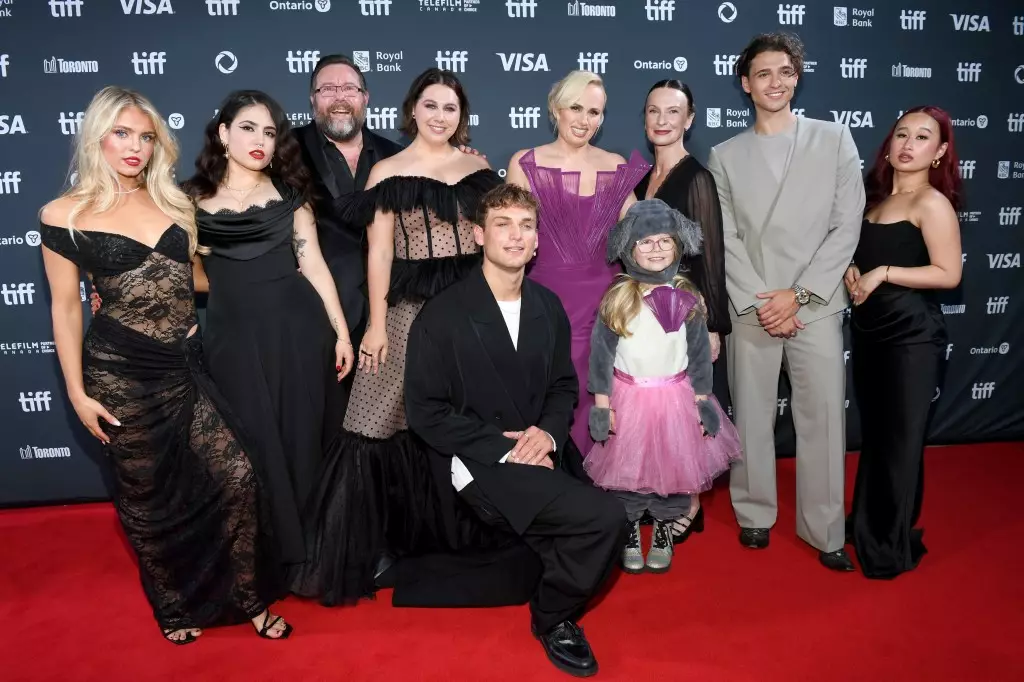Rebel Wilson, a multifaceted talent in the entertainment industry, has taken a formidable stance against the producers of her musical drama, “The Deb.” Amid a backdrop of accusations involving breach of contract and inappropriate behavior, Wilson is not just defending herself; she is addressing a broader culture of silence and misconduct in the film industry. As more details unfold, this case serves as a critical lesson on accountability in Hollywood.
For several months, speculation has surrounded the strained relationship between Rebel Wilson and the producers of “The Deb,” specifically Amanda Ghost, Gregor Cameron, and Vince Holden. Tensions escalated when Wilson, who holds multiple roles as director, writer, and star of the film, accused the trio of undermining her authority and engaging in unethical practices. The public confrontation gained traction following the Toronto Film Festival, where “The Deb” had its world premiere. Just over a week after the premiere, Wilson filed a counter-complaint against the producers, asserting her commitment to fight not only for her rights but for the rights of others who have faced similar challenges in the industry.
In her counter-complaint, Wilson explicitly names the producers’ alleged misconduct, labeling their behavior as “reprehensible” and detailing a roster of claims that include theft, bullying, and sexual misconduct. Such allegations highlight a troubling pattern that, if validated, could have serious implications for those involved and the broader film community.
At the core of Wilson’s claims is a narrative of power dynamics familiar in many workplaces, particularly within the entertainment industry. Wilson has accused the producers of employing intimidation tactics to silence her, a move designed to retain control over the narrative surrounding the film and its production. This intimidation appears to be systematic, with Wilson suggesting that her complaints were met with the “Amanda Ghost strategy”—a euphemism for manipulation and coercive tactics aimed at maintaining the status quo and dissuading further inquiries into the producers’ conduct.
Wilson’s outspoken nature has invited both admiration and pushback. When she called the producers “absolute f*ckwits,” it was a candid reflection of her frustration and a public rejection of their tactics to minimize her role and contributions to the film. The subsequent defamation lawsuit initiated by the producers against Wilson highlights the contentious nature of the proceedings, revealing the lengths to which parties may go to defend their reputations, even amid serious allegations.
As Wilson’s counter-complaint unfolds, the involvement of witnesses comes into play. Her lawyer, Bryan Freedman, indicated that the upcoming proceedings might unearth a more extensive catalogue of the producers’ alleged misconduct. This element of the case underscores the importance of accountability in the industry. Freedman’s suggestion that only a fraction of the alleged misconduct has been revealed raises questions about transparency and the safety of individuals working in similar environments.
Furthermore, the legal and social implications of this lawsuit extend beyond the immediate parties. It calls into question the broader structures in which filmmakers operate, especially concerning the treatment of women and underrepresented groups in Hollywood. The willingness of former colleagues to speak out against Ghost’s behavior could catalyze a movement that encourages more individuals to come forward, dismantling a culture that has, for too long, tolerated impropriety in silence.
Rebel Wilson’s counter-complaint is not merely a personal battle but a potentially transformative moment in the film industry. Her determination to confront alleged misconduct head-on represents a call for change and accountability. As audiences and industry insiders keep an eye on the legal proceedings, the implications are profound: The entertainment community has an opportunity to address systemic issues and foster an environment where individuals can safely express their grievances without fear of retaliation.
The case surrounding “The Deb” serves as a reminder of the complexities and challenges faced by creatives navigating power dynamics in the film industry. It emphasizes the need for open dialogue, increased accountability, and transformative change within the cultural landscape of Hollywood. The forthcoming developments will be a litmus test for the industry and its commitment to addressing the deep-rooted issues that have plagued it for far too long.
